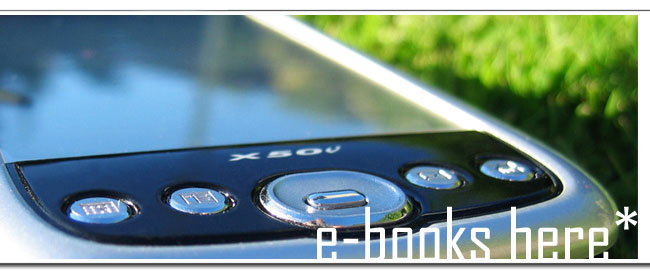According to Jeff Jarvis, there is a new rule now on the web : Cover what you do best. Link to the rest.
Try this on as a new rule for newspapers.
That’s not how newspapers work now. They try to cover everything because they used to have to be all things to all people in their markets. So they had their own reporters replicate the work of other reporters elsewhere so they could say that they did it under their own bylines as a matter of pride and propriety. It’s the way things were done. They also took wire-service copy and reedited it so they could give their audiences the world. But in the age of the link, this is clearly inefficient and unnecessary. You can link to the stories that someone else did and to the rest of the world. And if you do that, it allows you to reallocate your dwindling resources to what matters, which in most cases should be local coverage.
This changes the dynamic of editorial decisions. Instead of saying, “we should have that” (and replicating what is already out there) you say, “what do we do best?” That is, “what is our unique value?” It means that when you sit down to see a story that others have worked on, you should ask, “can we do it better?” If not, then link. And devote your time to what you can do better.
In the rearchitecture of news, what needs to happen is that people are driven to the best coverage, not the 87th version of the same coverage. This will work for publications and news organizations. It will also work for individuals; this is how a lone reporter’s work (and reputation) can surface. We saw that happening with the Libby trial and Firedoglake’s liveblogging of it. As Jay Rosen said at our NPR confab last week — and I’ve heard this elsewhere — theirs became the best source for keeping up on the trial. Reporters and editors knew it and were using it. So those same reporters and editors should have been sending their readers to the blog as a service: ‘We’re not liveblogging it, but they are. We’ll give you our analysis and reporting later. Enjoy.’ That is where the architecture of news must go because links enable it and economics demand it.There’s another angle to this: News is not one-size-fits-all. We don’t get all our news from one source anymore. We get bombarded with news all around us. So we all knew that Anna Nicole Smith was dead (or, in Jack Cafferty’s immortal words, still dead). So that means that not every newspaper needs to cover that story in depth.
It certainly means that The New York Times needn’t. So why did the Times devote considerable space and reporting and editing talent to the Anna Nicole story this week? They added nothing more to the story. It’s not what they do best. At the least, if they felt they really needed to cover it, they should have used the AP. Online, they certainly should have just linked to the many, many other sources that are covering it. And then the paper could have used its resources for news that matters and news that they can do uniquely well.
So why did they do it? They didn’t want to be left behind. They perhaps even didn’t want to seem snotting (as if the Anna Nicole story were below them and their readers). But that’s not the issue. Making the best use of their resources and talent it. They need to take advantage of the link.
Newspapers are getting more comfortable with linking out even to competitors. This takes it farther. It says that the best service you can perform for yourself and your readers is to link instead of trying to do everything.
And once you really open yourself up to this, then it also means that you can link to more people gathering more coverage of news: ‘We didn’t cover that school board meeting today, but here’s a link to somebody who recorded it.’ That’s really no different from saying after a big news event, ‘We weren’t there to take pictures, but lots of our readers were and here they are.’So you do what you do best. And you link to the rest. (Jeff Jarvis)
That is the new architecture of news.
Download ebooks on http://www.frenchtheory.com/ - See that post with different algorithms in metabole - See the journal French Metablog with today different posts -PHONEREADER Library - - Jean-Philippe Pastor
skip to main |
skip to sidebar

Blogger
Google Book Search
BlogRing

Labels
- 3G (2)
- adoption (1)
- aggregation (1)
- amazon (4)
- app (2)
- apple (2)
- application (3)
- barnes (1)
- bebook (1)
- benefit (1)
- bibliothèque (2)
- blog (1)
- browsing (1)
- building (1)
- cellular (1)
- changing (1)
- classics (1)
- click (1)
- color (1)
- commerce (1)
- communication (1)
- companion (1)
- connecté (3)
- connected (2)
- content (3)
- contract (1)
- control (2)
- converter (1)
- copyright (1)
- couleur (1)
- critics (1)
- device (10)
- distribution (3)
- download (2)
- drm (4)
- e-lit (1)
- ebook (18)
- economics (3)
- engine (1)
- epub (2)
- europeana (1)
- experience (1)
- feed (1)
- file (1)
- format (2)
- french (2)
- Google (8)
- habit (1)
- hypertext (3)
- idea (1)
- iliad (1)
- in-store (1)
- industry (1)
- innovation (2)
- internet mobile (6)
- iphone (11)
- irex (2)
- japon (1)
- journalism (1)
- keyword (1)
- kindle (12)
- library (3)
- license (1)
- link (1)
- linking (1)
- live (1)
- livre numérique (4)
- livrel (1)
- manga (1)
- marketing (1)
- media (3)
- method (1)
- microsoft (1)
- newspaper (2)
- note (1)
- now (1)
- Orange (3)
- ownership (1)
- paper (1)
- pdf (1)
- periodical (1)
- phonereader (9)
- phrase (1)
- platform (1)
- poetics (1)
- presse (1)
- print (3)
- problem (1)
- provider (1)
- prs (1)
- publisher (6)
- publishing (5)
- reader (15)
- reading (5)
- recession (1)
- resource (1)
- retailing (1)
- revolution (1)
- right (1)
- rss (1)
- sales (1)
- savings (1)
- scanning (2)
- screen (2)
- search (1)
- seller (1)
- sensitive (1)
- seo (1)
- service (1)
- SFR (2)
- shop (2)
- site (1)
- smartphone (1)
- software (5)
- sony (8)
- standart (2)
- stanza (4)
- startup (1)
- store (2)
- strategy (1)
- sucess (1)
- tablet (1)
- telephone (2)
- template (1)
- terminal (3)
- theory (1)
- video (2)
- vision (2)
- web (1)
- wifi (5)
- wireless (5)
- word (1)

